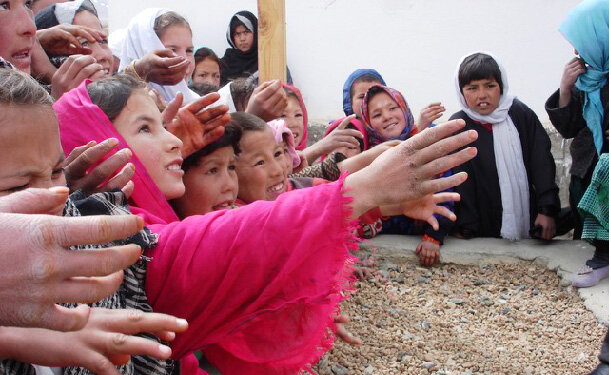The Future of Afghanistan [Protecting Girls’ Education and Women’s Empowerment]
Written by: By Carolyn Handschin & Marilyn Angelucci
“Much lies in the balance. The progress. The hope. The dreams of a generation of young Afghan women and girls, boys and men,” was the call for solidarity by the UN SG Antonio Guterres in his address to the Security Council on September 16. Safeguarding the very hard-won rights of women and girls, he implored, will be as “we stand as one.”
The Afghans are strong people with a rich cultural heritage who have lived many hardships, and prevailed. As reported by the UN High Commissioner for Refugees, the threat of violence has only exacerbated the half-million already internally displaced due to drought, food scarcity, homelessness, COVID and an overwhelmed health system.
Educating girls to ensure lasting peace
Most worried or even fearful, are the girls and women. Will they be able to continue their education which is a right they only recently won, or will that right be taken away from them again? In 1995 WFWP Afghanistan wanted to send volunteers to create educational and development programs together with local women in Kabul. Because of the danger and lack of freedom for women under the Taliban, it was not possible. They decided instead to establish a school for Afghan refugees in New Delhi, India, the Syed Jamaluddin Afghan School (SJAS). The school allows both boys and girls to study together and the curriculum with its western influence would not be allowed by the Taliban. The funding from the former government of Afghanistan has now been discontinued. New sources of funding are currently being sought so that these young innocent refugees will not again have their development and dreams interrupted. (website)
The reality now is that the Afghan people are desperate to find stability and security as peace processes are being worked out. Quality education for girls and for boys is a key for the future of the nation. As important is a vibrant and balanced social fabric that allows the benefits of that education to be applied in community building and governance. The experience of WFWP in Afghanistan over decades organizing extensive but interrupted humanitarian programs found that the support most requested were scholarships and educational opportunities for girls. It is not only the Afghan women, but the whole community who clearly realize the importance of the education of women in ensuring lasting peace.
Youth engagement from abroad
The chaos in Afghanistan began in the middle of a Human Rights Advocacy Internship Program of WFWPI UN Office in Geneva. Impassioned with concern, it was unanimously decided to temporarily shift focus to prepare a statement for the Special Session on Afghanistan of the 48th Human Rights Council. The seriousness was compelling as the interns realized they may have a chance to actually affect a current crisis. Interactive meetings were held with an Afghan school director and former government minister and a set of 8 recommendations were drawn up and submitted to the Council. (statement link)
“For women to be part of an inclusive and representative government, their rights and dignity must be upheld today.” The focus of youth was highlighted as well. “If young girls and boys are not protected, there will be no one to inherit and build a thriving and innovative Afghanistan tomorrow. Young people hold within the vitality and hope of a better future as well as a memory of today’s reality, and the decisions we make.”



